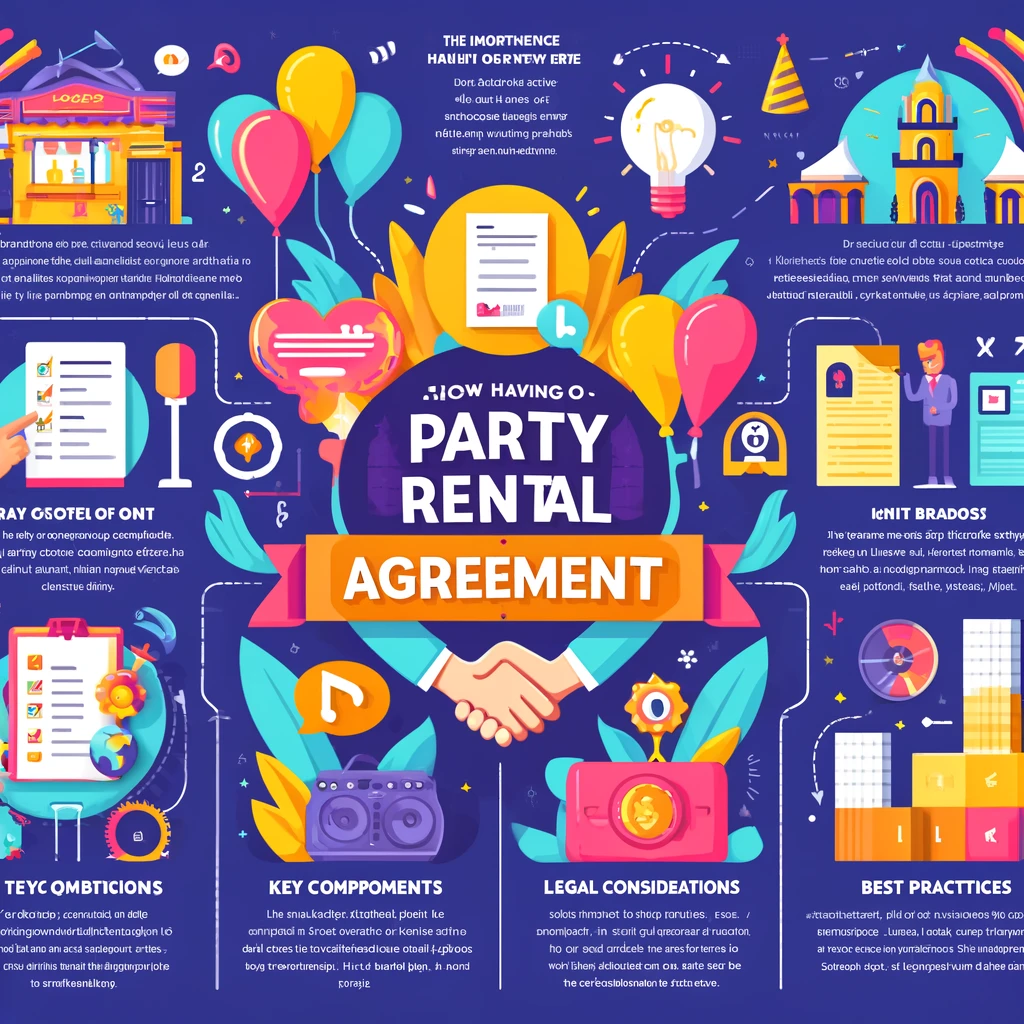The Essential Guide to Crafting Party Rental Agreement Contracts
Planning an event, whether it's a wedding, corporate gathering, or a casual party, often involves renting equipment, venues, or services. A party rental agreement contract plays a pivotal role in ensuring that both the rental company and the client are on the same page regarding expectations, responsibilities, and liabilities. This comprehensive guide delves into the essentials of crafting a party rental agreement contract, highlighting legal considerations, key components, and best practices to ensure your event runs smoothly and successfully.

Understanding Party Rental Agreement Contracts
A party rental agreement contract is a legally binding document between a rental company (lessor) and a client (lessee) that outlines the terms and conditions of renting party equipment, venues, or services. These contracts are crucial for detailing the specifics of the rental, including duration, payment terms, cancellation policies, and liability for damages.
Importance of a Well-Structured Contract
Clarity and Expectations: A clear contract sets explicit expectations for both parties, detailing what is being rented, for how long, and the cost involved.
Legal Protection: It provides legal protection for both parties in case of disputes, non-compliance, or unforeseen circumstances affecting the event.
Risk Management: Outlines responsibilities for damage, loss, or injury related to the rented items or services, helping manage risks associated with event planning.
For foundational knowledge on contract law and its application to rental agreements, resources such as Cornell Law School’s Legal Information Institute offer invaluable insights.
Key Components of a Party Rental Agreement Contract
1. Parties Involved
Clearly identify the rental company and the client, including contact information.
2. Rental Details
Describe the items or services being rented, rental period, and delivery/pickup specifics.
3. Payment Terms
Detail the rental cost, deposit requirements, acceptable payment methods, and cancellation/refund policies.
4. Responsibilities and Liabilities
Clarify maintenance, damage, and liability issues, specifying who is responsible for what during the rental period.
5. Cancellation and Changes
Outline the procedure for cancelling or altering the agreement, including any associated fees or deadlines.
6. Dispute Resolution
Specify how disputes related to the agreement will be resolved, whether through mediation, arbitration, or court proceedings.
7. Signatures
Ensure the contract is signed by authorized representatives of both parties, making it legally binding.
Legal Considerations
When drafting a party rental agreement contract, it’s important to comply with relevant laws and regulations:
State and Local Laws: Be aware of any state or local regulations that may impact rental agreements, such as those governing consumer rentals or event planning. The U.S. Small Business Administration provides guidance on legal requirements for small businesses.
Consumer Rights: Ensure the contract respects consumer protection laws, providing clear, fair terms, and avoiding any deceptive practices.
Insurance and Liability: Consider requirements for insurance coverage, both for the rental company and the client, to cover potential damages or liability issues.
Best Practices for Drafting Your Agreement
Personalization: Customize the agreement to fit the specifics of each rental situation, addressing the unique needs of the event and items/services rented.
Clarity: Use clear, straightforward language to ensure all terms are easily understood by both parties.
Consultation: Engage a legal professional to review the contract, ensuring it is comprehensive and compliant with applicable laws.
Documentation: Keep detailed records of all rental agreements, along with any communications related to the event and rental terms.

Create & Review Your Contracts 10x Quality and Ease
Lawyer-level AI handles all your contract needs, with real lawyers providing safeguarding support

Conclusion
A party rental agreement contract is essential for safeguarding the interests of both the rental company and the client, ensuring a mutual understanding and setting the stage for a successful event. By incorporating the key components discussed, adhering to legal considerations, and following best practices for drafting, parties can navigate the complexities of event rentals with confidence and peace of mind.
For further exploration and education on drafting contracts and understanding legal nuances, visiting authoritative sites like Wikipedia’s page on contracts can provide a broader context and deeper understanding of contractual obligations.

